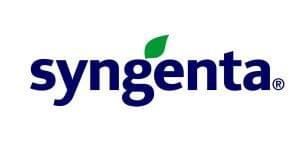Syngenta is opening a new era with its innovations in field cultivation
Syngenta is starting this year with an effective crop protection product range and a wide, excellent seed genetics. Thanks to the company’s new programs, producers can not only get these products for their field management, but they can also count on the experience of the company’s experts.

The focus of Syngenta’s strategy has been the producer and sustainable and profitable farming for a long time. In order to achieve the common goal, the company develops together with its producers and tries to provide real help, both in good and bad years. It uses the latest technologies and, based on experience, tries to help their farming with cross-cultural expert advice. Adapting to the place of production and to the given farming environment, he develops the farming strategy for the next year together with the producers.
Syngenta is the leader in sunflower with a 63% market share
In 2024, producers planted Syngenta sunflowers on more than 450,000 hectares, i.e. Syngenta hybrids were chosen for two-thirds of the sunflower sowing area. This also means that the company’s market leading position has been further strengthened with a 63% market share according to the 2023 data of the Kynetec sunflower seed panel. SY Bacardi was the farmers’ favorite last year as well, with high oleic acid SY Excellio taking second place. This year, the broadest palette on the market will be expanded with two hybrids: the high oleic tribenuron-methyl resistant Subeo hybrid, available since last year, has received a worthy companion with the NX22316 hybrid. In the 2023 NÉBIH variety experiment, the new hybrid beat all the hybrids of the mid-ripening group treated with SU, even the first national multiple linoleic acid SU Sureli hybrid. The other Syngenta innovation is SY Corsica AR, recommended for areas with medium or high yield potential, which also means the introduction of a completely new weed control technology. The A.I.R. technology enables the most flexible weed control currently available on the market, as it can also be treated with Listego Pro or Fluence herbicides. As a result, it is not necessary to decide on the post-dicot herbicide when choosing a hybrid, so the most suitable weed control technology can be used for the existing weed conditions. Currently, Syngenta has the widest range of hybrids in Hungary, as everyone can find the hybrid that performs best in their own environment, regardless of oil or weed control technology.
The goal remains the same: aim for an average yield of 6 tons in sunflowers
Syngenta’s “6 tons” program will continue in 2024, the main goal of which is to convey the experience gained with the program’s participants and the knowledge of the company’s experts to producers through regional representatives. In the program, they strive to optimize nitrogen doses from the beginning, because this element is a significant cost factor, and on the other hand, excessive nitrogen can have many negative effects. These include greater sensitivity to pathogens, reduced oil content and excessive growth. In addition to nitrogen, the optimal capture and utilization of sunlight is also important.
Corn hybrids and corn hybrids are in an increasingly better position
The selection of corn seeds has also been expanded every year with increasingly excellent performance hybrids. Syngenta currently has a market share of over 14% based on the 2023 survey by market researcher Kynetec. This means approximately more than 120,000 hectares of Syngenta corn growing area in Hungary. For the 2024 sowing season, SY Artos (FAO 350-370) and SY Stacio (FAO 360-380) will arrive, and the novelty of the silage segment is SY Andromeda (FAO 560-580). Hungarian farmers are already sowing Syngenta’s winter wheat on more than 100,000 hectares. The wide portfolio makes it possible to satisfy the needs of farmers in different cultivation areas and landscape units. Last year, the portfolio was expanded with a new variety: SY Rocinante will be available to producers from 2024. The importance of hybrid barley has increased in recent years as a result of rising input material prices and extreme weather. In addition to the well-known Jallon, SY Dakoota and SY Dooblin hybrids, Syngenta will present two new hybrids in the second half of 2024, one of which will be a breakthrough in protection against grain viruses.
Every link in the chain is important for the successful cultivation of corn
In the fall of 2023, Syngenta launched the “Every eye counts” technological program with its open production partners. The company is at the forefront in the breeding of ear plants, in the field of plant protection and biological products, so it can offer farmers a unique cultivation technology offer. The program examines the technological elements as a complex system, with the help of which farmers can optimize their profits. In this season, the first experiments were launched at plant level, both in terms of plant protection technology and cultivation technology.
Effective plant protection novelties
Boxer terbuthylazine-free pre-emergence herbicide is an effective solution for sunflower plant protection. In corn, the market-leading soil disinfectant Force 1.5 G, which is still 20 years old this year, continues to reliably serve farmers’ production. Syngenta’s website provides assistance in choosing the right herbicide, whether farmers are looking for terbuthylazine-containing or non-terbuthylazine solutions (Camix Pro, Elumis Bang, PeakNik). The company presented one of the broadest technologies against monocots in the weed control of corn plants, the newest member of which is the Avoxa family. In the year 2023, the fungicide technology based on the Elatus Era was repeatedly proven, which again proved its outstanding effectiveness against yellow rust. In addition to traditional crop protection technologies, the company also supports farmers’ production with useful digital solutions.
Environmental sustainability: new biological solutions
Syngenta introduced the first product in 2023 under the name Quantis, which was a great success in its first year. In 2024, the company’s novelty, Vixeran containing the bacteria Azotobacter salinestris CEST 9690, opens a new field in the natural nitrogen supply of field crops. The endophytic species of bacteria live in the leaves, roots and on the surface of the roots, converting the nitrogen in the air into ammonia ions, providing an absorbable source for the plant. With the help of the preparation, the fertilizer load on our environment can be reduced and the ecological footprint of agriculture can be effectively reduced. The product can be perfectly integrated into the technology of field plants, as it can be applied together with the most important plant protection solutions, with the exception of copper-containing preparations.
Related news
Not a turnaround, but consolidation: an agricultural outlook for 2026
🎧 Hallgasd a cikket: Lejátszás Szünet Folytatás Leállítás Nyelv: Auto…
Read more >Top 5 sustainability trends in 2026 – a new era may begin
🎧 Hallgasd a cikket: Lejátszás Szünet Folytatás Leállítás Nyelv: Auto…
Read more >Related news
New country director at the helm of JYSK Hungary
🎧 Hallgasd a cikket: Lejátszás Szünet Folytatás Leállítás Nyelv: Auto…
Read more >The number of Hungarian dishes has increased to one hundred with the terpertős pogácsa and Vecsés sauerkraut
🎧 Hallgasd a cikket: Lejátszás Szünet Folytatás Leállítás Nyelv: Auto…
Read more >









